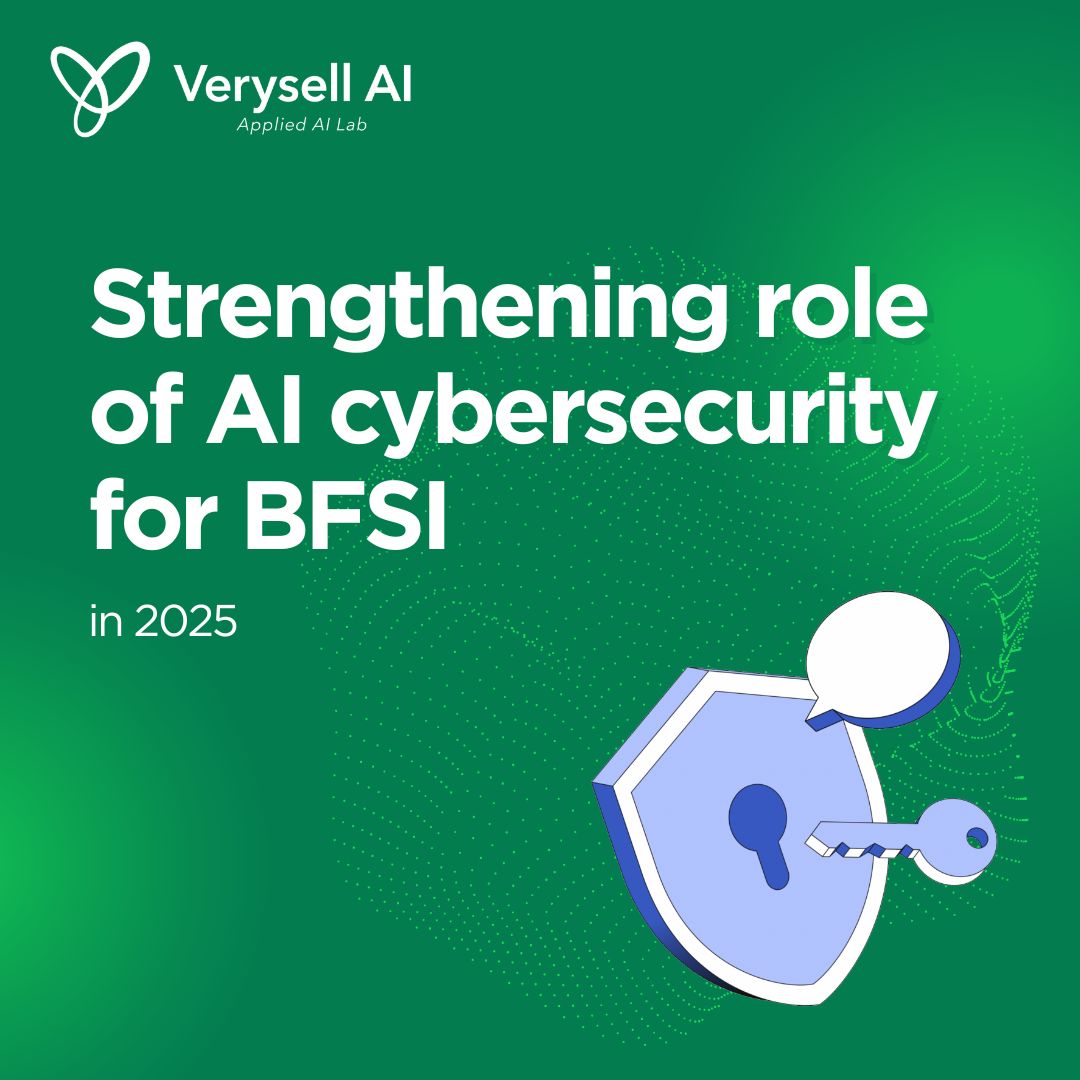AI cybersecurity for BFSI industry is undergoing a significant transformation. With the increasing sophistication of cyber threats and the growing reliance on digital services, the integration of Artificial Intelligence (AI) in cybersecurity measures has become not just advantageous but essential. This blog post explores the pivotal role AI will play in enhancing cybersecurity in the BFSI sector over the next few years.

Advanced threat detection within AI cybersecurity for BFSI
One of the most critical applications of AI in cybersecurity is its ability to detect threats in real time. Traditional security systems often struggle to keep pace with the evolving nature of cyber threats, which can lead to vulnerabilities. AI-powered systems utilize machine learning algorithms to analyze vast amounts of data and identify patterns indicative of malicious activity.

In 2025, we can expect AI to enhance threat detection capabilities significantly. By leveraging predictive analytics, AI can forecast potential threats before they occur, allowing organizations to take preventative measures. This proactive approach will not only reduce the risk of data breaches but also minimize the financial and reputational damage associated with cyberattacks.
>> Read more: 5 Ways Retail Predictive Analytics Drives Growth in Business
Automated incident response
In the fast-paced world of BFSI, timely responses to security incidents are crucial. AI can automate many aspects of incident response, allowing organizations to react more swiftly and effectively. For instance, AI systems can analyze alerts, prioritize threats based on severity, and even initiate predefined response protocols without human intervention. By 2025, we can anticipate a more sophisticated integration of AI in incident response strategies. This will enable BFSI institutions to manage incidents with greater efficiency, reducing downtime and ensuring compliance with regulatory requirements.

Enhanced risk management
Effective risk management is vital for BFSI organizations to safeguard sensitive customer data and maintain trust. AI can improve risk assessment processes by analyzing historical data, identifying potential vulnerabilities, and providing insights into emerging threats. This data-driven approach allows organizations to make informed decisions about their cybersecurity strategies.
Furthermore, AI can continuously monitor systems for anomalies, providing real-time insights that help organizations adapt their risk management strategies as threats evolve. In 2025, we expect AI to play an even more prominent role in creating dynamic risk profiles that evolve with the organization’s threat landscape.
>> Read more: Top 4 Best Benefits Agentic AI in Retail Operations
Fraud Detection and Prevention
Fraud is a persistent challenge in the BFSI sector, costing organizations billions each year. AI has already begun to revolutionize fraud detection by analyzing transaction patterns and identifying unusual behavior. By 2025, AI algorithms will be even more adept at distinguishing between legitimate and fraudulent transactions, resulting in higher detection rates and fewer false positives. With the integration of AI, BFSI institutions will enhance their fraud prevention capabilities, protecting both their assets and their customers. This will not only improve financial outcomes but also bolster customer trust and loyalty.
>> Explore more: Best Future of AI Fraud Detection and Prevention in BFSI 2025
Regulatory compliance
The BFSI sector is subject to strict regulations regarding data protection and privacy. AI can streamline compliance processes by automating data management, reporting, and audits. By 2025, AI-driven compliance solutions will be integral to ensuring that organizations meet regulatory requirements efficiently and effectively. AI can also help organizations stay abreast of changing regulations and adapt their practices accordingly, reducing the risk of non-compliance penalties.
Conclusion
As we look toward 2025, the role of AI in cybersecurity for the BFSI sector is set to expand dramatically. With its capabilities in advanced threat detection, automated incident response, enhanced risk management, fraud detection, and regulatory compliance, AI will become an indispensable ally in the fight against cyber threats.
Contact us embracing these technologies will not only help BFSI organizations protect their assets but also ensure the safety and trust of their customers in an increasingly digital world.


